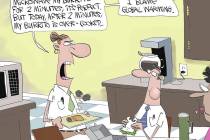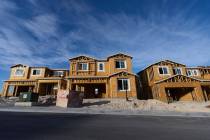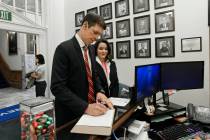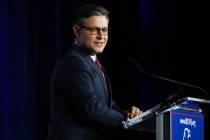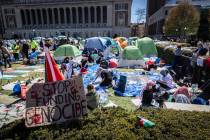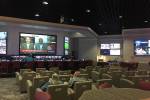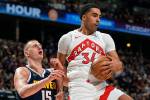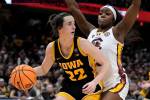Las Vegas debate completes gaming’s emergence onto national scene
The final presidential debate will be held this evening and the attention of 80 million or more Americans will be fixed on Las Vegas. That’s fitting because 2016 will go down as one of the most consequential years for the gaming industry.
Once confined to Nevada and New Jersey, gaming now operates in 40 states, supports more than 1.7 million American jobs and generates $38 billion in tax revenues annually for communities across the United States.
Gaming’s growth has led to broad public support for the industry, which may be one reason why Las Vegas and industry participants are playing such a prominent role in this year’s election.
The Republican candidate for president has long been connected to the gaming industry. The highest-ranking Democratic senator has been a long-time supporter of gaming. Casinos executives and investors are serving as high-profile public supporters and advisers of Hillary Clinton and Donald Trump on CNBC, CNN and other networks. And the endorsement of Las Vegas Sands’ chairman Sheldon Adelson was considered such major news it was delivered through an op-ed in The Washington Post.
Interestingly enough, when gaming executives speak out, gambling is never an issue. Instead, the focus is on high-priority policy issues including the national debt, government spending, trade, immigration, health care and even the Iran nuclear agreement. It’s another sign of gaming’s emergence from the political sidelines into the public mainstream.
On Capitol Hill, the bipartisan Congressional Gaming Caucus includes a growing list of representatives from roughly 17 states who understand the economic benefits gaming generates in their districts and recognize the many national issues that impact the industry — from immigration to tax policy. And this December, the new MGM National Harbor — a $1.4 billion casino, boutique hotel, conference center, dining and entertainment destination — will open just eight miles from the U.S. Capitol on a site overlooking the Potomac River.
Politics is not the only arena where gaming has come into the national spotlight. Last summer, the NHL announced it was awarding a new franchise to Las Vegas — the league’s first expansion in nearly 20 years. In the 2017-2018 season, hockey fans will attend games just off the famed Strip.
For decades, Las Vegas was considered off limits by the NFL because of the presence of sports betting. Today, there is growing discussion about moving the Oakland Raiders to Las Vegas. As far as sports betting goes, Dallas Cowboys Owner Jerry Jones says that Las Vegas “does not have disfavor with me, in my opinion, relative to being an NFL city.”
League leaders seem to agree. NFL Commissioner Roger Goodell says the league has “evolved a little on gambling.” This evolution matches the enthusiasm of sports fans nationwide. Far from having a problem with sports betting, Americans have embraced it.
According to research by the American Gaming Association (AGA), 80 percent of Super Bowl watchers want to change America’s current sports betting law, which largely prohibits wagering on games outside Nevada. Two-thirds of these football fans say states should decide whether or not to legalize sports betting, just as they do other forms of gambling.
In the United States today, millions of Americans visit casinos every year, tens of millions of Americans bet on games every week, President Obama fills out his NCAA basketball bracket each year on ESPN and a casino will soon open a stone’s throw from the U.S. Capitol. Millions of people will be tuning into Las Vegas to view the last major event in this historically unique presidential election, and the one thing everyone finds to be acceptable: gaming.
Geoff Freeman is president and CEO of the American Gaming Association.








